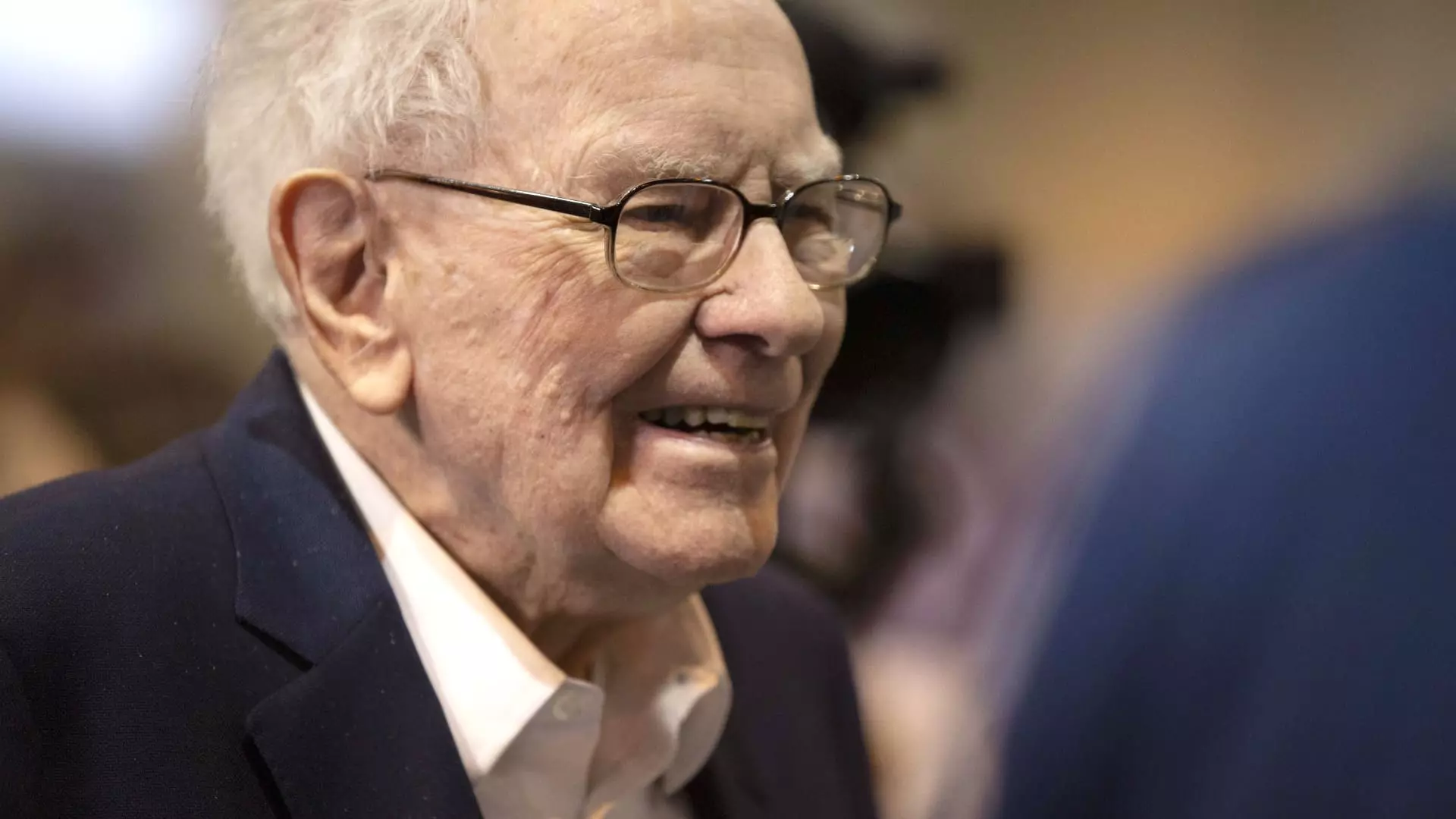Warren Buffett, the revered CEO of Berkshire Hathaway, recently stirred curiosity and speculation among investors with his latest financial maneuvers. His esteemed reputation as a value investor has led to myriad questions regarding his recent choice to accumulate a notable $334 billion cash reserve, all while liquidating over $134 billion in stock holdings in the past year. While Buffett’s annual letter typically provides a window into his investment philosophy, this year, it lacked clarity on his unusually defensive posture, further deepening the mystery built around his intentions.
Buffett’s actions may seem perplexing, especially given his long-standing advocacy for equity investments. The annual letter, while promising continued preference for stocks, also underscored an unprecedented cash accumulation. Investors, familiar with Buffett’s philosophy that favors productive assets over liquid ones, are left questioning the rationale behind this strategic pivot. Buffett reassured stakeholders, emphasizing that the substantial cash position does not indicate a withdrawal from equities: “Despite what some commentators currently view as an extraordinary cash position at Berkshire, the great majority of your money remains in equities,” he wrote. This assertion simultaneously calms fears while raising eyebrows—could it be that Buffett anticipates a market downturn, necessitating a war chest for acquisitions?
The timing of this cash hoarding coincides with prevailing economic narratives suggesting a potential tightening of monetary policy and fears of recession. Given the S&P 500’s robust performance over the last couple of years, Buffett’s restraint in capital deployment appears contradictory. Many market participants expected him to capitalize on the seen gains; rather, his actions suggest a defensive disposition, indicative of an underlying caution towards a volatile economic landscape filled with uncertainties.
Analyzing Buffett’s stock dispositions provides a broader understanding of his approach in a changing market environment. Notably, Berkshire Hathaway has engaged in net selling of equities for nine consecutive quarters, highlighting Buffett’s strategic pivot away from major holdings like Apple and Bank of America. This historical shift raises inquiries regarding Buffett’s long-term view on the health of these companies and potentially hints at overvaluation concerns in segments of the market he has traditionally favored.
Interestingly, despite substantial increases in operating earnings, Buffett has refrained from repurchasing Berkshire shares, a signal that he does not view his own company as undervalued at present. In a heated bull market that has yielded investors significant gains, his inactivity is striking. Analysts and investors, who have previously admired Buffett for his decisiveness, now wonder about his apparent withdrawal from direct market participation.
Another salient point from the recent letter is Buffett’s endorsement of successor Greg Abel, who has been groomed to take the reins of asset management at Berkshire. Many analysts speculate that Buffett’s cautious strategy may not be a mere market prediction but a deliberate effort to prepare the company for a post-Buffett era. By selling major equity positions and increasing cash reserves, he is potentially positioning Abel to navigate future market turbulence with robust financial backing.
Buffett’s comparison of Abel’s investing acumen to that of his late partner, Charlie Munger, suggests confidence in Abel’s ability to identify promising opportunities when they arise. Nevertheless, the path of success may be riddled with challenges, and guiding Berkshire through this transitional phase requires a balance between preserving capital and seizing fortuitous investment openings.
While Buffett’s financial maneuvers paint a picture of caution, they also leave room for optimism regarding future investments. His signal of intent to increase holdings in Japanese trading companies he has invested in over the past six years may indicate where he perceives growth potential amid global market fluctuations.
Overall, Buffett’s current strategies ignite a national discourse among investors about the appropriateness of cash reserves in an era of rising equity values and higher interest rates. With mounting pressure to clarify his silence on portfolio dynamics, Buffett must navigate these waters mindfully, ensuring shareholder confidence remains intact even as uncertainties loom.
Warren Buffett’s recent financial strategies might be interpreted in numerous ways. Whether as a preparation for a market downturn, a prudent transition of leadership, or a calculated strategy to seize future opportunities, the implications of his conservatism ripple throughout investment circles. Investors and stakeholders alike are left to ponder where Buffett’s storied investment intuition may lead them next.

